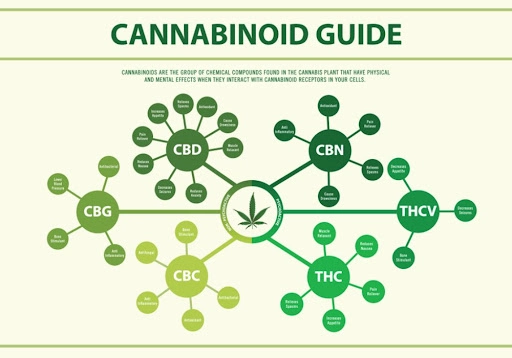Considering Cannabis For Medical Purposes?
There are numerous benefits to using cannabis, but there are also some contraindications you should be aware of. We’ll go over the benefits of cannabis and outline some key things to keep in mind if you’re thinking about using it. Keep reading to learn more!
Evolving Landscape of Medicinal Cannabis: A Historical Overview
First, some brief history about cannabis. Marijuana, or cannabis, is a psychoactive drug that has been used for centuries for medical and recreational purposes. Yasmin Hurd is the Ward-Coleman Chair of Translational Neuroscience and the director of the Addiction Institute at the Icahn School of Medicine at Mount Sinai. She has stated that “Cannabis contains over 500 chemicals, including over 140 cannabinoids that have a greater or lesser degree of psycho-pharmacological activity.”


Weed in Ancient Civilizations
Findings of cannabis use have been recognized as far back to 2800 BC, when it was listed as a medicine by the father of Chinese medicine, Emperor Shen Nung in their pharmacopeia. Various other cultures participated in medical cannabis use such as; Indians, Hindus, Assyrians, Greeks, and Romans while other documented evidence suggests continued cannabis use as medicine from over 5,000 years ago in the area we now call Romania.
Cannabis' Entry and Exit from the U.S. Pharmacopeia
It landed in the United States Pharmacopeia back in 1850, exactly 30 years after it was founded. It became federally restricted to be used or sold in 1937 when the Marihuana Tax Act was passed while simultaneously being redacted in the US Pharmacopeia in 1942. As of June 6th, 2022, the website Procon.org notes that medicinal cannabis is now legal in 38 states and public opinion about the drug continues to change favorably.
Understanding the Dual Sides of Cannabis: Benefits and Contraindications
Cannabis has a variety of potential benefits, including relief from chronic pain, anxiety, and depression. However, cannabis can also have adverse effects, so it’s important to understand both the risks and benefits before using it. This post will provide an overview of the benefits and contraindications of cannabis use. It should be noted also that to use medical cannabis properly and legally in the state of Illinois should include a consultation with a qualified medical provider like the physicians at 1Body1life. You will be advised everything necessary to achieve the best results if you decide to get your medical cannabis card.
Cannabis and Its Therapeutic Uses: Medical Conditions Most Frequently Studied That Qualify in Illinois:
- Alzheimer’s disease
- Appetite loss
- Cancer
- Crohn’s disease
- Diseases affecting the immune system like HIV/AIDS or Multiple Sclerosis (MS)
- Eating disorders such as anorexia
- Epilepsy
- Glaucoma
- Schizophrenia
- Post traumatic stress disorder (PTSD)
- Multiple sclerosis
- Muscle spasms
- Nausea
- Pain
- Seizures
- Wasting syndrome (cachexia)
THC Variations: Weight, Consumption, and Tolerance Impact Side Effects
THC variances may affect people differently depending on the person’s weight, consumption, and frequency of prior use. Less tolerant people may have adverse reactions. The three most common side effects are coughing fits, anxiety, and paranoia. The least common are fainting, hallucinations, or cold sweats.
Weed Interactions with Prescription Medications
Marijuana or cannabis products can interact with prescription medications to cause rare but serious side effects. These include bleeding complications potentially for recent cannabis user (last 3-30 days) that has had a certain type of bleeding stroke called aneurysmal subarachnoid hemorrhage (aSAH) stroke that may double the chances of a serious stroke complication, the potential for increased drowsiness caused by slowing down heart rate or breathing rates which may make a person become more relaxed but some people may become reckless after ingesting them.
Some people may have confusion, and poor judgment translating into poor decision-making ability. Some may get mentally stimulated from consuming THC -the psychoactive cannabinoid found in marijuana and have irritability.
5 Major Types of Tetrahydrocannabinol (THC) in Cannabis
The crown jewel of the cannabis plant, stands as the most abundant and potent THC isomer, a chemical compound responsible for the plant’s intoxicating effects. Its dominance is evident in the market, with many THC products boasting its presence. Delta 9’s claim to fame goes beyond just abundance; it was the first THC isomer to gain legal recognition, paving the way for the hemp industry with the 2018 Farm Bill. This landmark legislation redefined hemp, allowing for the legal trade of hemp-derived products containing no more than 0.3% THC on a dry weight basis. This opened the door for a wave of non-psychoactive THC products, while Delta 9 retained its throne as the king of the intoxicating realm.
What makes Delta 9 such a sought-after experience? It’s a symphony of sensations that has captivated users for centuries. Imagine a wave of tranquility washing over you, muscles loosening, and anxieties melting away. Laughter bubbles up; joy blooms in your chest like a vibrant flower. The world seems brighter and sharper; every bite is a revelation. This is the magic of Delta 9, a dance of euphoria and relaxation that leaves you feeling uplifted and connected. Delta 9 deserves respect. Its effects vary greatly depending on individual factors and consumption methods.
This potent newcomer, discovered in 2019, sent ripples through the scientific community with its formidable psychoactive punch. Imagine a molecule that binds to brain receptors 33 times more than the legendary delta-9 THC. This isn’t just a minor upgrade; it’s a seismic shift, a whisper of intoxication where a roar used to be. It’s no surprise that THCp needs a lighter touch. Its potency demands a minimalist approach, a delicate dance with consciousness where a mere brushstroke can paint a vibrant high. Gone are the days of hefty portions; THCp demands respect, its effects arriving in a swift, potent wave that’s as fleeting as it is intense.
This is the non-psychoactive precursor to delta-9-THC. THCa reigns as the king, but without its fiery coronation, it remains inert. This coronation, known as decarboxylation, is a dance with heat that transforms THCa into its psychoactive alter ego, delta-9 THC. Decarboxylation strips away a carboxyl group from THCa, leaving it free to waltz with the CB1 and CB2 receptors, the gatekeepers to euphoric bliss in the brain. Without this fiery transformation, THCa remains a mere prince, capable of influencing inflammation and pain but devoid of the intoxicating crown.
A rebellious cousin to the mighty delta-9 THC. Unlike its potent relative, THCv emerges not from a fiery coronation, but from a slow, gentle breakdown of THCa, a subtle dance in the shadows. This gentle metamorphosis grants THCv a fleeting crown, its effects a quick brushstroke on the canvas of consciousness compared to delta-9’s bold splash. Its touch is lighter, a whisper of euphoria instead of a booming chorus. For the cannabinoid novice, THCv is a friendly guide, a stepping stone into the world of altered perceptions without the risk of being swept away. It’s a taste of the sun, not a blinding blaze.
This minor isomer is less potent than delta-9-THC and produces milder effects. It’s often sought after for its potential medical benefits with fewer psychoactive effects. It has gained traction in states where THC products are legal, offering a unique and potentially milder experience.
Born from a chemical twist within the cannabis plant, Delta 8 exists in smaller quantities than its dominant cousin, Delta 9. This makes extracting it a delicate dance, but the result can be a subtler psychoactive effect.
Imagine a whisper compared to Delta 9’s booming shout – a gentle wave of relaxation washing over you instead of a tidal wave of euphoria.This subtlety, however, doesn’t mean Delta 8 lacks punch. It still retains its ability to unlock that blissful state of mind, weaving feelings of contentment and happiness into your experience. While some may find themselves giggling or lost in philosophical musings, others might simply sink into a deep, restful slumber. Delta 8’s embrace is warm and inviting, but its effects can vary greatly depending on individual factors and consumption methods.
So, if you’re seeking a less intense exploration of the cannabinoid world, Delta 8 might be your perfect guide. Remember, just like any potent force, approach it with awareness and respect. Listen to your body, start slow, and let your journey unfold at its own pace
Medical Cannabis Indications and Contraindications:
Indications for Medical Cannabis:
- Chronic Pain: Particularly neuropathic pain or pain related to conditions such as fibromyalgia or rheumatoid arthritis.
- Multiple Sclerosis (MS): To manage spasticity and pain.
- Nausea and Vomiting: Especially when associated with chemotherapy treatments.
- Appetite Stimulation: Commonly used for patients with HIV/AIDS or those undergoing cancer treatments.
- Epilepsy: Specific strains or products, like CBD oil, have been found effective for certain forms of epilepsy, notably Dravet syndrome and Lennox-Gastaut syndrome.
- Glaucoma: To reduce intraocular pressure, although it’s often a short-term relief.
- Post-Traumatic Stress Disorder (PTSD): To manage symptoms in some patients.
- Crohn’s Disease: Some patients report symptom relief.
- Parkinson’s Disease: Can be useful for some symptoms like tremors or sleep disturbances.
- Insomnia: Certain strains can help promote sleep.
- Chronic Pain: Particularly neuropathic pain or pain related to conditions such as fibromyalgia or rheumatoid arthritis.
- Multiple Sclerosis (MS): To manage spasticity and pain.
- Nausea and Vomiting: Especially when associated with chemotherapy treatments.
- Appetite Stimulation: Commonly used for patients with HIV/AIDS or those undergoing cancer treatments.
- Epilepsy: Specific strains or products, like CBD oil, have been found effective for certain forms of epilepsy, notably Dravet syndrome and Lennox-Gastaut syndrome.
- Glaucoma: To reduce intraocular pressure, although it’s often a short-term relief.
- Post-Traumatic Stress Disorder (PTSD): To manage symptoms in some patients.
- Crohn’s Disease: Some patients report symptom relief.
- Parkinson’s Disease: Can be useful for some symptoms like tremors or sleep disturbances.
- Insomnia: Certain strains can help promote sleep.
Contraindications for Medical Cannabis:
- History of Psychosis: Cannabis can exacerbate symptoms or trigger the onset in predisposed individuals.
- Severe Cardiovascular Diseases: Cannabis can increase heart rate and affect blood pressure, posing risks for some patients.
- Pregnancy and Breastfeeding: Potential risks to fetal and neonatal development. History of Substance Misuse: Particularly in individuals with a predisposition to cannabis or other substance use disorders.
- Respiratory Diseases: Smoking cannabis can exacerbate symptoms.
- Young Age: Regular use in adolescents can impact cognitive development.
- Interactions with Other Medications: Especially with drugs that affect liver enzymes or are CNS depressants.
- History of Psychosis: Cannabis can exacerbate symptoms or trigger the onset in predisposed individuals.
- Severe Cardiovascular Diseases: Cannabis can increase heart rate and affect blood pressure, posing risks for some patients.
- Pregnancy and Breastfeeding: Potential risks to fetal and neonatal development. History of Substance Misuse: Particularly in individuals with a predisposition to cannabis or other substance use disorders.
- Respiratory Diseases: Smoking cannabis can exacerbate symptoms.
- Young Age: Regular use in adolescents can impact cognitive development.
- Interactions with Other Medications: Especially with drugs that affect liver enzymes or are CNS depressants.
It’s essential to understand that the efficacy and safety of medical cannabis can vary based on the individual, strain, dosage, and method of consumption. Always consult with a healthcare professional before starting or stopping any medication or treatment.
The Medicinal Weed Silver Lining
Despite the cautionary tales, it’s essential to remember that cannabis isn’t just about recreation. Marijuana has been shown to have a wide range of medicinal benefits, particularly for people with debilitating pain or PTSD. If you’re taking any type of prescription drug or over-the-counter medication then there is always the chance that using marijuana may have some negative implications when combined due to their reactivity. That is why it is extremely important to discuss this with an experienced marijuana doctor that understands these potential contraindications. As with any powerful substance, the key lies in understanding and respect.
The Most Common Ways to Consume Cannabis:
- Oral consumption -gummies, brownies, lollipops, & chocolate
- Topical Skin Application- cream, lotion, oil, spray, oil, or cream
- Sublingual- Tinctures
- Pills or capsules
- Smoking it or inhalation with a vaporizer, joint, bong, dab, or pipe
Considering Cannabis as a Treatment Option? Consult a Qualified Medical Provider First
If you are considering cannabis as a treatment option, it is important to be aware of the benefits and risks. Cannabis has been shown to have a wide range of medicinal benefits, but every human being is different and each individual needs to discuss their unique circumstances with a qualified healthcare provider about the potential side effects when used with other medications. If you have a qualifying medical condition you should consider discussing if cannabis maybe right for you. An experienced marijuana doctor can provide insights into potential contraindications, ensuring you get the benefits while minimizing the risks.
Classes Of Pharmaceutical Drugs That May Cause Contraindications With Cannabis Consumption:
- Sedatives – Sedative drugs like Ambien®, Lunesta®and Benadryl
- Anti-Anxiety Drugs– Xanax, Valium, Librium, Antidepressants, Zoloft, Prozac, Lexapro
- Painkillers– Codeine Percocet Vicodin
- Anticonvulsant medicines-Tegretol, Topamax, Depakene, Coumadin, Plavix, Heparin
Evaluating Cannabis as a Medical Treatment Option with Expert Guidance
At the crossroads of medical innovation and personal well-being stands cannabis. As an evolving natural remedy, it’s essential to have an authoritative voice guide you through the intricate web of decisions associated with its use. Our team of medical experts is here to help you make an informed decision about whether cannabis is right for you.
The Cannabis Decision: Pros and Cons
The idea of using cannabis as a treatment can be daunting for many. Every individual’s journey with health is unique. Every patient journey with 1Body1Life starts with a personalized consultation with medical professionals. We discuss things like your current medications and supplement consumption, diet, medical condition(s), symptoms, prior usage, and lifestyle. We can help you weigh the pros and cons of using cannabis based on scientific evidence and personal anecdotes, giving you a clear picture of what to expect. Once you know what to expect we will guide you through the entire process of obtaining your marijuana card in Illinois. This comprehensive approach ensures we understand the entirety of your health profile.
Your Path to an Illinois Marijuana Card: Risk-Free Consultation
1Body1Life offers free medical cannabis card consultations so that you can find out if you qualify for this natural medicine and if it may be right for you or someone you are a caregiver for. Give us a call today to get started! It doesn’t hurt to see if you qualify. It’s 100% risk-free with 1Body1Life Wellness and Cannabis Clinic.
Your health, your decision. Leverage our expertise to help guide you to make an informed decision.



